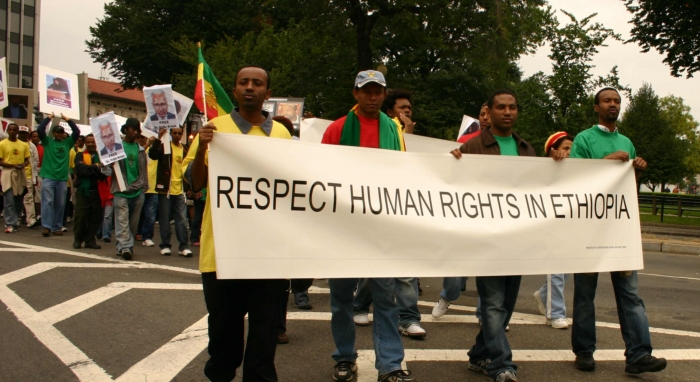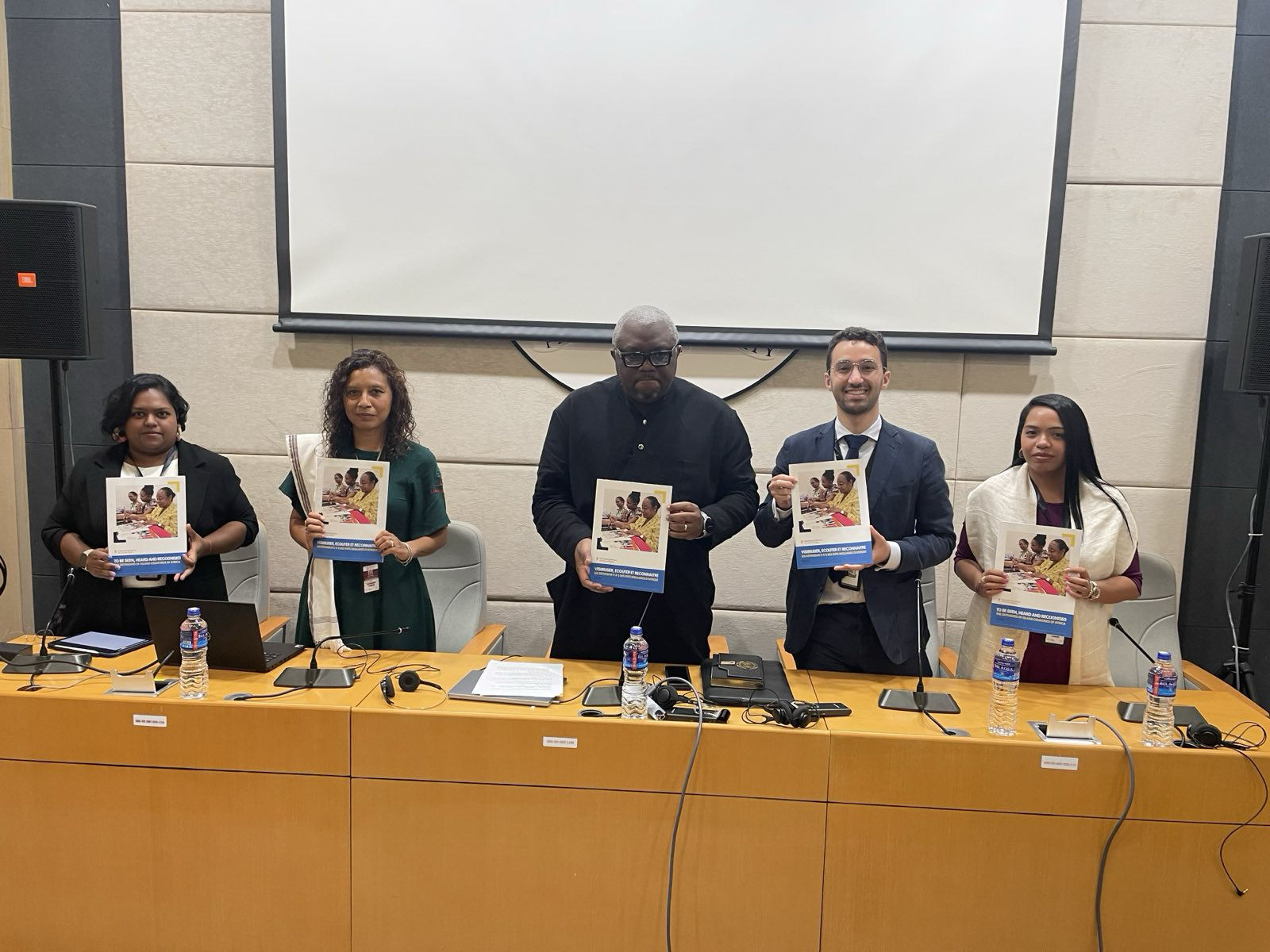
Egypt: Reform unjust vice laws, guarantee open civic space
During Egypt's UPR adoption at HRC59, Nora Noralla delivered a joint statement on behalf of ISHR, Cairo 52 and Middle East Democracy Center. Watch and read the full statement below.
Photo: Elver Barnes, Flickr.

(Geneva) – Just weeks before the 2015 Ethiopian elections, time is running out for the Ethiopian Government to demonstrate a commitment to human rights and freedom of expression, and to remove restrictions upon civil society, said ISHR in a briefing paper published today.
The Federal Democratic Republic of Ethiopia is scheduled to be reviewed at the 56th session of the African Commission on Human and Peoples’ Rights from 21 April – 7 May 2015.
In its 51st ordinary Session, the African Commission adopted Resolution 218 on the Human Rights Situation in Ethiopia condemning the arrest and prosecution of journalists and political opposition members for exercising their legitimate rights of freedom of expression and association, as well as the excessive restrictions placed on the work of human rights defenders.
The Commission also called on the Ethiopian Government to ensure legislation is compliant with the United Nations Declaration on Human Rights Defenders and other international human rights instruments.
Especially vulnerable are human rights defenders working on LGBTI issues and Muslim activists.
Key recommendations that should be made to Ethiopia during its review include that the Government ensure the investigation of all violations against human rights defenders and repeal existing legislation used to criminalise the legitimate work of human rights defenders.
ISHR’s briefing paper on the situation of human rights defenders in Ethiopia is intended to highlight the situation for human rights defenders in Ethiopia since its last review by the African Commission; the steps taken by the Ethiopia to implement the African Commission’s past recommendations; and key recommendations for the African Commission to consider making to Ethiopia during its current review.

During Egypt's UPR adoption at HRC59, Nora Noralla delivered a joint statement on behalf of ISHR, Cairo 52 and Middle East Democracy Center. Watch and read the full statement below.

The 59th session of the UN Human Rights Council (16 June to 9 July 2025) will consider issues including civil society space, climate change, sexual orientation and gender identity, violence and discrimination against women and girls, poverty, peaceful assembly and association, and freedom of expression, among others. It will also present an opportunity to address grave human rights situations including in Afghanistan, Belarus, China, Eritrea, Israel and oPt, Sudan, Syria and Venezuela, among many others. Here’s an overview of some of the key issues on the agenda.

On 4 May 2025, on the sidelines of the 83rd Ordinary Session of the African Commission on Human and Peoples’ Rights (ACHPR) in Banjul, ISHR officially launched its new report on the situation of human rights defenders in the African island states: Cape Verde, Comoros, Madagascar, Mauritius, São Tomé and Príncipe, and Seychelles.